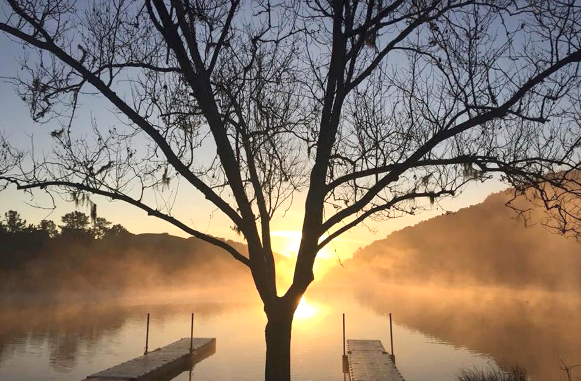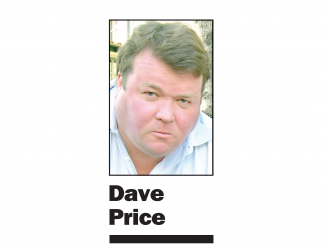
BY ELAINE GOODMAN
Daily Post Correspondent
Although the city of Palo Alto has decided several times since the 1970s not to open Foothills Park to non-residents, a lawsuit filed against the city regarding the resident-only restriction may finally change officials’ minds.
The City Council tonight will decide whether to remove the city’s prohibition on non-Palo Altans using the park. Under the proposal by City Attorney Molly Stump and City Manager Ed Shikada, the city would maintain its cap of 1,000 people in the park at one time. Residents would have priority for renting campsites or a picnic area within the park.
The park also would be renamed Foothills Nature Preserve. With council approval tonight, the new rules could take effect as soon as mid-December.
The current proposal would be a change in direction from the action the council took on Aug. 3.
At that meeting, council voted 5-2 to launch a pilot program that would increase non-residents’ access to the park. Details of the pilot program were yet to be worked out.
The council also voted on Aug. 3 to bring the Foothills Park issue back in 2022 to discuss placing a measure on the ballot, asking voters whether to open the park to non-residents.
The reason for the proposed new strategy for Foothills Park is that the city is being sued over the park’s entrance restrictions, Stump and Shikada said in a report to the council.
“This is a significant development that council must assess and take account of in order to determine the best course for Palo Alto,” the report said.
The ACLU filed the lawsuit on Sept. 15 on behalf of the NAACP of San Jose/Silicon Valley and 10 residents of Palo Alto and nearby communities. The lawsuit alleges that the city’s Foothills Park restrictions violate the plaintiffs’ rights of freedom of movement, freedom of speech and freedom of assembly.
The ACLU called the park’s residents-only restriction a “legacy of the city’s history of racial discrimination.”
The lawsuit was initially filed in Santa Clara County Superior Court but the case has been moved to federal court.
Settlement in the works
While the city chooses to fight some lawsuits, Stump and Shikada said they’re already working on a settlement of the Foothills Park case. They said they’re asking the plaintiffs’ attorneys if they’d be willing to drop the lawsuit if the city agrees to allow non-Palo Altans to use the park, and not bring back the non-resident restrictions in the future.
Under potential terms of a settlement, the city wants to be able to limit how many people are in the park at one time and to offer Palo Alto residents a discount on any entrance fee.
According to the report from Stump and Shikada, courts have determined that governments can impose “reasonable” regulations on First Amendment rights, such as requiring permits for parades or festivals.
The report also notes the findings of federal courts, which have said “First Amendment rights protecting expressive activity are ‘nowhere stronger than in streets and parks.’”
Foothills Park is 1,400 acres of land off of Page Mill Road that the city bought from the Lee family in the late 1950s. Since it opened to the public, access to the park has been restricted to Palo Alto residents or city workers. Non-residents can enter if they’re a guest of a Palo Altan or a city employee.
Non-residents can also enter the park if they hike in along the Bay-to-Ridge Trail.
Although the question of letting non-residents into the park has come up from time to time, the City Council reaffirmed the residents-only restrictions in 1973, 1991 and 2005, according to a report to the council for its Aug. 3 meeting.
About 152,000 people visit the park each year, according to city estimates. About 2,800 non-residents are turned away each year on weekends, when there is staff at the entrance.
The NAACP lawsuit over access to Foothills Park said the park has long been a place for “expressive uses” such as lectures, meetings, celebrations and free concerts.
The lawsuit details four protests that took place at the park from June through August. In at least two cases, some protestors weren’t allowed inside the park because they weren’t Palo Alto residents, the lawsuit alleged.
City washed protesters’ drawing away
On July 5, about a dozen protesters gathered at the park entrance and drew the word “desegregate” in large letters on the pavement, according to the lawsuit.
“The city used hundreds of gallons of water to wash the chalk away by 7 a.m. the next morning,” the lawsuit said.
The current round of debate on non-resident access to Foothills Park began when the city’s Parks and Recreation Commission held a series of discussions on the issue in 2018 and 2019. The commission recommended that the city launch a pilot program in which non-Palo Altans in up to 50 vehicles could be admitted to the park a day, each paying a $6 entry fee.
In June, a group of “community leaders,” including former Palo Alto mayors, city commission members, Congresswoman Anna Eshoo, and retired Superior Court Judge LaDoris Cordell, issued a letter that urged the city to open Foothills Park to everyone.
Palo Alto residents seem to be divided on whether to open the park to non-residents. Opponents say they enjoy the park’s serenity, lack of crowds, and opportunities to see wildlife — which increased access could disrupt.
Others say it’s only fair that residents of other cities be allowed to enjoy the park.
In two recent informal surveys — one conducted by Councilwoman Lydia Kou and the other by Friends of Palo Alto Parks founder Roger Smith — about 80% of residents said they wanted to keep the current residents-only policy for Foothills Park.



